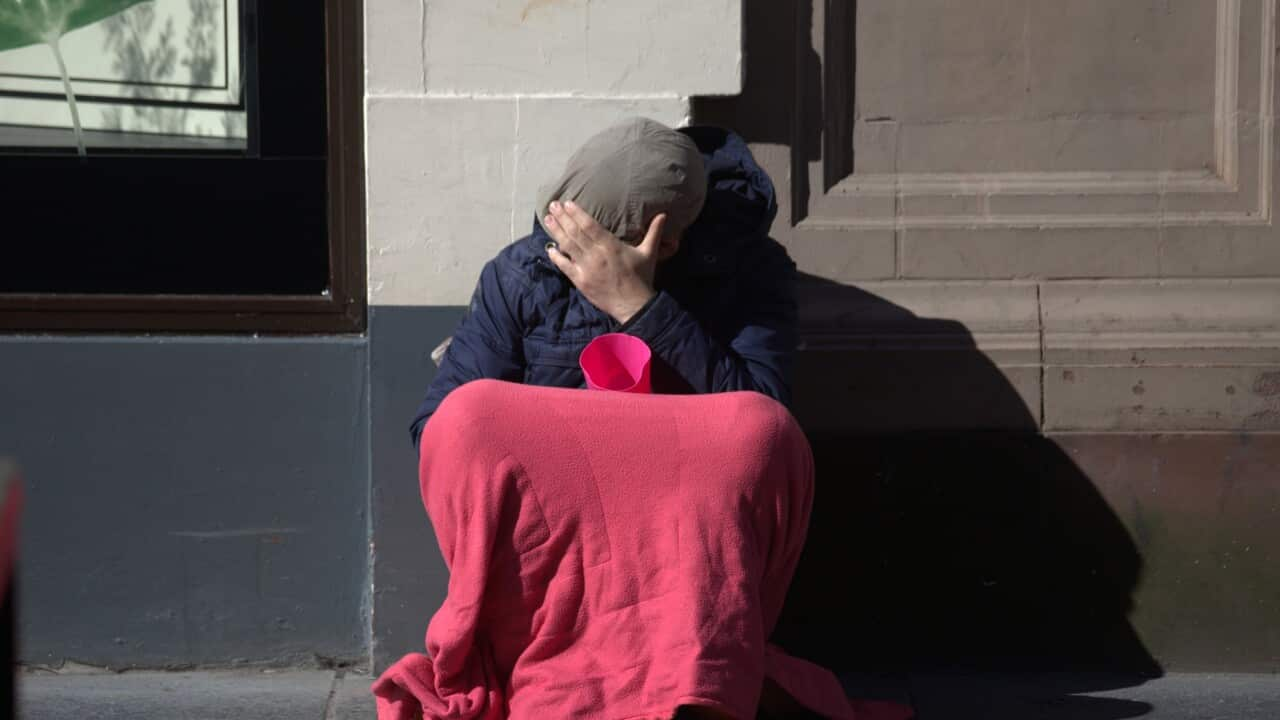Australia has an increasing number of people sleeping rough on its streets, most of whom are male, middle-aged, unemployed and suffering mental health or drug problems.
That's the snapshot painted by the Australian Institute of Health and Welfare (AIHW), which has come up with the country's first comprehensive analysis on who is sleeping rough and why.
The idea for the report was in part sparked by findings in the 2016 Census which reported that 8200 Australians were living on the streets, sleeping in parks or cars, squatting or living in improvised dwellings on the night the survey was taken.
Using data collected by government-funded specialist homelessness services providers, the institute found that about 13,700 people were sleeping rough during the 2011/12 financial year and sought help.
Two thirds of them were male and more than half were aged over 35.
Nearly all were unemployed, while more than two thirds were living alone.
Just under half had a mental health issue, while a third were struggling with a drug or alcohol problem.
Among the rough sleepers aged between 15 and 34, more than half (55 per cent) were female and many had experienced domestic violence.
While the latest census found that rough sleepers account for about one in 14 of the total number of homeless people in Australia, their numbers have increased by 20 per cent since 2011.
AIHW spokesman Matthew James said the data collected for the report would help homeless service providers target programs to help people.
"By looking specifically at rough sleepers over multiple years, today's report fills an important gap in the data, which will help us better understand the complexity of homelessness in Australia," he said.
A fifth of those who had been sleeping rough had experienced multiple periods of homelessness, the report found.
By the end of four-year period under review, more than a quarter of the rough sleepers had been helped to find housing.
However the housing situation for another quarter was unknown.
Share



